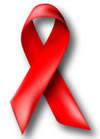
|
At AIDS 2014, Dr. Anthony S. Fauci Discusses Key Challenges in HIV Scientific Discovery: Cure, Vaccine
Monday, July 21
A cure for HIV and a vaccine to prevent infection are essential to achieve an end to the HIV/AIDS pandemic, but researchers must
learn a great deal more to develop either intervention, said Anthony S. Fauci, M.D., director of the National Institute of
Allergy and Infectious Diseases (NIAID), part of the National Institutes of Health (NIH).
Dr. Fauci's remarks were delivered at the 20th International AIDS Conference (AIDS 2014) in Melbourne, Australia, as part
of his plenary lecture, "Critical Challenges in HIV Discovery: Cure and Vaccine."
"We can aspire to a world without AIDS based on the treatment and prevention modalities that we already have," Dr. Fauci said.
"However, there is no doubt in my mind that we could achieve this goal in a more expeditious and permanent way if we could
offer the possibility of a cure-or at least sustained virologic remission in the absence of therapy-to a substantial
proportion of individuals infected with HIV, while at the same time boosting our combination prevention options
with a vaccine."
Globally, an estimated 35 million people were living with HIV at the end of 2013, according to UNAIDS. The number of new HIV
infections and AIDS-related deaths have both dropped by more than one third in the past decade, largely because of the
extraordinary advances in HIV prevention and treatment. Finding a cure for HIV infection is a top scientific goal but
Fauci stressed that we are still in the early discovery phase of cure research and the field is confronted with
many challenges. One of the major stumbling blocks towards achieving a cure is the ability of the virus to
rapidly establish hidden reservoirs in the body. Characterizing and quantifying these reservoirs remain
top priorities for investigators, as does the development of biomarkers to identify and track their development.
Investigators are also pursuing a variety of strategies aimed at eradication of the viral reservoir, such as activating latently
infected cells to make the virus vulnerable to antiretroviral drugs and immune responses, directing immunotoxic therapy at the
reservoir, intensifying therapy using multiple antiretroviral drugs, using gene therapy to make a patient's cells refractory
to HIV infection, and even stem-cell transplants. With the exception of a single individual who received a stem cell
transplantation from a person whose cells were refractory to HIV infection-the so-called "Berlin Patient"-these
approaches have not yet been successful.
Dr. Fauci stated that several lines of evidence suggest that very early treatment may prove to be extremely important if viral
eradication is to be achieved. "If the virus is to be eradicated from HIV-infected individuals, it likely will be very
important to start off with a smaller reservoir by treating infection as early as possible," he said, noting the
example of the Mississippi baby-an HIV-infected child who was treated within 30 hours of birth and continued
for 18 months and then remained off antiretroviral treatment for 27 months without evidence of virus in the
blood or an anti-HIV immune response until the virus ultimately rebounded. Critical scientific questions
remain unanswered about that case, including what were the immunologic or other mechanisms that kept
the virus from rebounding for more than two years, what trigged the rebound, and from what cell
type and body compartment did the virus rebound. An upcoming NIH-funded clinical trial will
attempt to address these and other questions.
In the absence of the ability to eradicate the virus completely, improving the understanding of HIV reservoirs and working
toward maintaining sustained virologic remissions following cessation of antiretroviral treatment are goals for HIV cure
research, according to Dr. Fauci.
In addition to HIV cure research, finding a vaccine to prevent infection remains a priority. Although many scientific approaches
to a vaccine have been attempted since the late 1980s, only one large trial, the RV144 study in Thailand, has demonstrated a
modest degree of success. Researchers are making progress in understanding the immune responses that helped protect
against infection in the Thai study, and working to develop the next generation of HIV vaccines, such as those
that might work by inducing broadly neutralizing antibodies capable of killing a wide range of HIV strains.
Such antibodies also hold promise for use as therapy. Complementary approaches, such as vaccines that
induce T cells to kill HIV-infected cells, are also being pursued.
"Researchers are making progress, but there is still much to be learned before we have a cure or vaccine for HIV," Dr. Fauci said.
"We must remain focused on developing these tools to move us closer to the end of AIDS."
###
NIAID conducts and supports research-at NIH, throughout the United States, and worldwide-to study the causes of infectious
and immune-mediated diseases, and to develop better means of preventing, diagnosing and treating these illnesses. News
releases, fact sheets and other NIAID-related materials are available on the NIAID Web site
at www.niaid.nih.gov .
About the National Institutes of Health (NIH): NIH, the nation's medical research agency,
includes 27 Institutes and Centers and is a component of the U.S. Department of Health and Human Services.
NIH is the primary federal agency conducting and supporting basic, clinical, and translational medical
research, and is investigating the causes, treatments, and cures for both common and rare diseases.
For more information about NIH and its programs, visit www.nih.gov .
SOURCE: www.niaid.nih.gov
For more HIV and AIDS News visit...
Positively Positive - Living with HIV/AIDS:
HIV/AIDS News
|